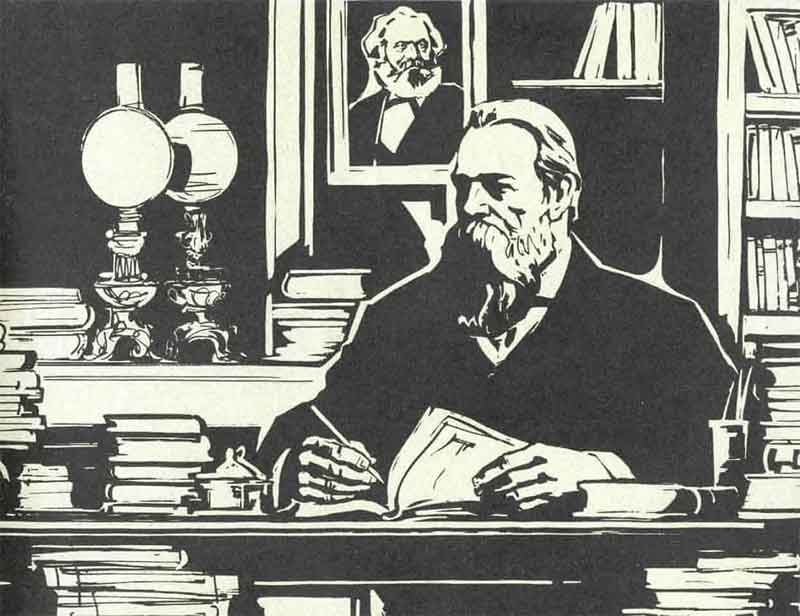
“And the first birthright of capital is equal exploitation of labor-power by all capitalists.” Marx thus describes a reality dominated by capital. Today, in this pandemic point, when death is sweeping away thousands of lives in countries, in India and Brazil, in cities, in New Delhi, Mumbai and Reo de Janeiro, when ordinary citizens are gasping for oxygen, when their relatives don’t know the way to find that oxygen, now pricier than diamond and gold, when cremation fires redden night sky of parts of cities, when crematoriums work round the clock, crematorium chimneys fall down out of heat from over-burning, when thousands of human souls with identity of laborers don’t know the way to survive, Karl Marx, born on May 5, 1818, demands a hearing of capital that constantly destroys all that humane on this planet, as the theoretician of proletarian revolution, scientific socialism and communism dissected capital to find out ways for survival of humanity from death clutches of capital.
Marx reminds the fact, as he writes, “[…] Capital is reckless of the health or length of life of the laborer, unless under compulsion from society.” (Capital, vol. I, Progress Publishers, Moscow, erstwhile USSR, 1977; the cited part in the above paragraph is also from the same source.) In this pandemic-time, in countries, capital has shown this fact – “reckless of the health or length of life of the laborer” – repeatedly, since the onset of the pandemic.
The revolutionary-philosopher pens the bitter truth: “[C]apital oversteps not only the moral, but even the merely physical maximum bounds of the working-day. It usurps the time for growth, development, and healthy maintenance of the body. It steals the time required for the consumption of fresh air and sunlight. It higgles over a meal-time, incorporating it where possible with the process of production itself, so that food is given to the boiler, grease and oil to the machinery.” (ibid.)
“All that concerns [capital]”, writes Marx, “is simply and solely the maximum of labor-power, that can be rendered fluent in a working-day. [….] [The capitalistic mode of production] produces also the premature exhaustion and death of the labor-power itself.” (ibid.) The pandemic has shown capital, capitalistic mode of production, exploitative system pushes out labor from shanties, throws away labor on streets, to uncertainties, on hundreds of miles-journey without water and food. The pandemic has shown huge number of laborers live in tiny rooms in fatal condition in pandemic situation in shiny cities that the labor constructed. Capital throws labor to the jaws of pandemic death, because, at that time, labor was not engaged with producing profit, labor is cheap that makes replacing perished labor with new labor cheap, labor is unaware and unorganized, labor is politically voiceless. The death-reality reminds Marx, as he writes, “capital comes dripping from head to foot, from every pore, with blood and dirt.” (ibid.) Since the pandemic spread its wings of death, profit has not ceased growing. That means exploitation of labor has not ceased although a huge part of labor has been thrown into the depth of destitution and death. That means intensity of exploitation has increased, and new labor has been chained to the machine of exploitation. Marx exposes these facts.
Marx found the proletariat as the gravedigger of the bourgeois system. He analyzed it. And defined its program. The last 25 years of his life went behind the famous book – Capital – difficult to comprehend. Marx has influenced people’s movements, life of billions of the exploited, political and economic programs of the working classes, and even of other classes, around the world.
Answers to the questions that arise to understand the intricacies of exploiting system, to understand the “mystery” of a few super-rich turning into super-super-rich in this pandemic time, that arise from the deaths of thousands due to complete carelessness, actually brutality, are in Marx, his works.
He stands for a politicized working class, a class-conscious and united working class. His position: The workers are to be aware of their power, the power to smash exploiting system, and to build up a dignified, humane society.
Marx died on March 14, 1883. And, Engels, Marx’s lifelong comrade, wrote to F A Sorge, secretary of the First International after the transfer of the International’s headquarter to New York in 1872:
“Humanity has grown shorter by a head, the most gifted head it has had at its disposal.”
Note: This is a part of the original article.
Farooque Chowdhury writes from Dhaka, Bangladesh.
GET COUNTERCURRENTS DAILY NEWSLETTER STRAIGHT TO YOUR INBOX














































